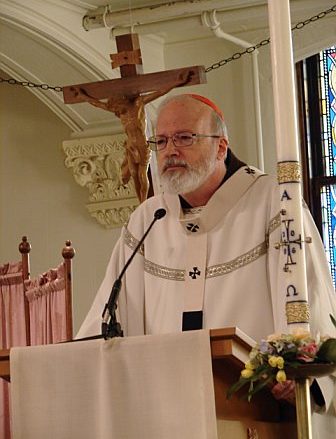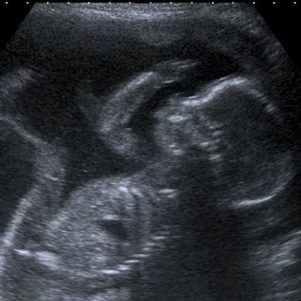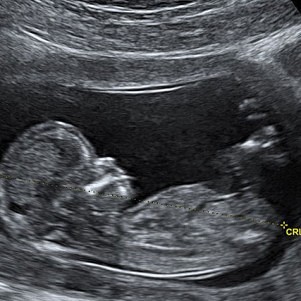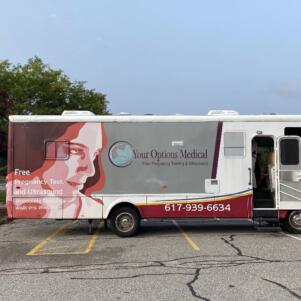Boston Archbishop Criticized for Featuring Abortion Supporters During Racial Healing Mass
By Matt McDonald | June 20, 2020, 13:26 EDT
 Cardinal Sean O’Malley, archbishop of Boston. Photo by Mvbrewer, courtesy of Wikipedia.
Cardinal Sean O’Malley, archbishop of Boston. Photo by Mvbrewer, courtesy of Wikipedia. The Catholic Action League is criticizing the archbishop of Boston for allowing two supporters of legal abortion to take prominent roles during a public Mass last weekend.
Cardinal Sean O’Malley celebrated a Mass for racial healing at Castle Island in South Boston on Saturday, June 13.
“Cardinal O’Malley’s gravely scandalous decision to showcase two advocates of the mass killing of pre-born children in his liturgy is yet another offense in his long and discreditable history of betrayal of the pro-life movement, and of the innocent unborn,” said C.J. Doyle, executive director of the Catholic Action League, in a written statement.
A spokesman for Cardinal O’Malley dismissed the charge.
“The Mass at Castle Island brought together people of different faiths and different backgrounds who share a common belief that we need to end racism in our society. The Cardinal’s record in defending the sanctity of life is unquestionable,” said Terrence Donilon, the secretary for communications and public affairs for the archdiocese, in an email message to New Boston Post.
Lydia Edwards, a Boston city councilor who represents East Boston, served as lector during the outdoor Mass at Castle Island, reading a passage from Scripture, and Linda Dorcena Forry, a former state senator, read the prayers of the faithful, according to The Pilot, the newspaper of the Archdiocese of Boston.
Both are Catholics. Both are Democrats. Both have expressed support for legal abortion.
Edwards appears in a video for NARAL Pro-Choice Massachusetts supporting the proposed ROE Act bill, which would expand access to abortion.
The bill would expand state funding for abortion and would remove an existing requirement in Massachusetts state law that girls 17 and younger get permission from a parent or a judge to get an abortion. Opponents say it would also legalize infanticide, by removing a requirement that a doctor who performs an abortion attempt to save the life of a baby born alive after an attempted abortion.
As a candidate in 2017, Edwards received the endorsement of the Planned Parenthood Advocacy Fund of Massachusetts.
Dorcena Forry, of Dorchester, served as a state representative from 2005 to 2013, and then as a state senator from 2013 to January 2018, when she resigned to take a job with Suffolk Construction, as vice president of diversity, inclusion and community for the Northeast.
As a state senator, her district included South Boston.
Dorcena Forry supported legal abortion while in the state Legislature, earning the endorsement of the Planned Parenthood Action Fund.
The Roman Catholic Church teaches that abortion is “gravely contrary to the moral law” because it is, in the Church’s view, the unjustified taking of a human life.
The U.S. Conference of Catholic Bishops in June 2004 approved a document called Catholics in Public Life, which says making abortion legal “is itself wrong” and that Catholic politicians who support abortion should not be held up for approval.
One passage of the document states (with boldface emphasis in original): “The Catholic community and Catholic institutions should not honor those who act in defiance of our fundamental moral principles. They should not be given awards, honors or platforms which would suggest support for their actions.”
Doyle, of the Catholic Action League, said bringing attention to abortion supporters during Mass undermines the Church’s teaching against abortion.
“The participation of these two allies of Planned Parenthood, City Councilor Lydia Edwards and former State Senator Linda Dorcena-Forry, sends the message that abortion is, at best, a secondary issue for Catholics. It informs society that collaboration with the culture of death is no barrier to respectability in the Catholic community,” Doyle said in a written statement.
Neither Edwards not Dorcena Forry could immediately be reached for comment.
O’Malley opposes the proposed ROE Act bill. He has preached against abortion, and he has frequently attended the March for Life, which takes place in Washington D.C. each January.
But some abortion opponents question some of O’Malley’s public actions with respect to abortion, including his initial decision in June 2017 not to allow pro-lifers to gather signatures on church property for an amendment to the state constitution that would allow state funding of abortions to cease. (O’Malley later lifted the ban on collecting signatures, with certain restrictions.) Some also say the archbishop has not done enough to support the 40 Days for Life campaign outside abortion clinics.
Edwards and Dorcena Forry were among several prominent blacks who attended the Mass last weekend, including Protestant clerics such as Reverend Eugene Rivers, Reverend Ray Hammond, and Bishop William Dickerson.
Cardinal O’Malley preached during the Mass on Jesus’s parable of the Good Samaritan. He compared George Floyd, the 46-year-old black man who died at the hands of a white police officer in Minnesota on May 25, to the man in the story beaten and left half dead by robbers.
“George Floyd was left by the side of the road, crushed on the ground. We cannot turn our backs and walk away without being guilty bystanders,” O’Malley said, according to the text of the sermon posted on his blog.
Members of society who countenance evil are complicit in it, O’Malley said.
“George Floyd was not just murdered by a rogue police officer. He was murdered by slavery and its legacy of racism,” O’Malley said. “He was murdered by those who turn their backs on racial violence, by those people who teach their children to be prejudiced, by those who know that it is evil but are too cowardly to speak up, by those who profit by exploiting others, by police unions who failed to see that the best way to protect good police officers is to get rid of the bad ones.”
To get rid of the evil among us, O’Malley said, requires action.
“We are in a historic moment that causes us to stand together as Americans, to be neighbors to each other, to overcome racial prejudice and institutional racism,” O’Malley said. “Racial tolerance is not enough; the antidote to racism is not just tolerating each other. The cure is solidarity and community. We have to want to be neighbors, to be brothers and sisters, even when we are not twins.”











